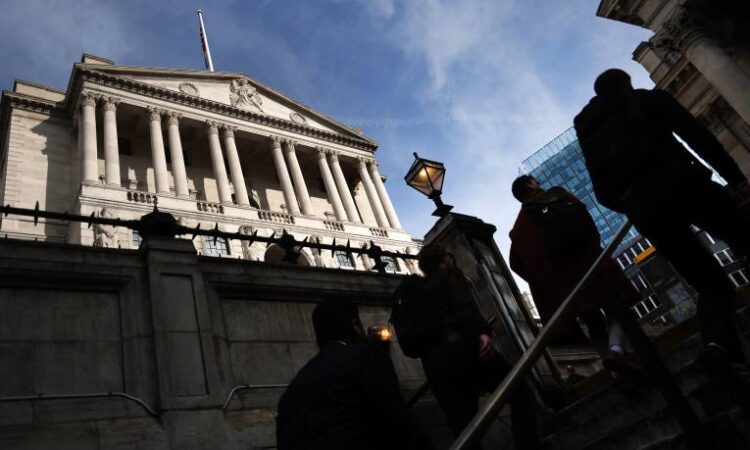UK economy grows 0.6% in Q1, ending technical recession; Biden to set new China tariffs on EVs, semiconductors and solar

The UK economy grew by 0.6 per cent in the first quarter of 2024 according to analysis released by the Office for National Statistics on Friday.
Driven by a resurgence in car manufacturing and widespread expansion in the services sector, the quarter-on-quarter growth rate represents the fastest since 2021 and signals the UK’s exit from last year’s “technical recession”.
This performance outpaced forecasts from both the Bank of England and economists polled by Reuters, who had expected a more modest 0.4 per cent growth.
The ONS data was hailed by Prime Minister Rishi Sunak as evidence that the economy had “turned a corner”. UK finance minister Jeremy Hunt said: “There is no doubt it has been a difficult few years, but today’s growth figures are proof that the economy is returning to full health for the first time since the pandemic.”
However, the UK’s opposition Labour Party, leading in opinion polls, criticised Sunak and UK finance minister Jeremy Hunt for being “out of touch”.
Rachel Reeves, Labour’s shadow chancellor, who hopes to succeed Hunt as finance minister, said that “this is no time for Conservative ministers to be doing a victory lap. The economy is still £300 smaller per head than when Rishi Sunak became prime minister”.
The UK data comes as the Bank of England held interest rates unchanged at a 16-year high of 5.25 per cent on Thursday, but signalled it may cut rates this summer if inflation stayed low.
—
US President Joe Biden is set to unveil fresh tariffs on China as early as next week, targeting key sectors such as electric vehicles, semiconductors and solar equipment, as reported by Bloomberg citing anonymous sources familiar with the matter.
The full announcement, scheduled for Tuesday, is expected to uphold existing tariffs, with specifics still under wraps pending final deliberations, Bloomberg’s sources said.
Biden’s targeted measures diverge from the across-the-board approach favoured by his Republican rival, Donald Trump, which White House officials view as overly blunt and inflationary.
Recent moves by the Biden administration include calls for higher tariffs on specific Chinese metal products and investigations into trade practices across shipbuilding, maritime and logistics sectors. Pressure has also been exerted on Mexico to curb indirect trade flows of Chinese metal products into the US.
China has criticised these tariff measures, labelling them as counterproductive and harmful to both the US and global economies.
—
Spain’s government is opposed to BBVA’s hostile takeover bid for its smaller rival Sabadell, economy minister Carlos Cuerpo said on Thursday.
Under Spanish law, the country’s economy ministry has the power to block any merger or acquisition of a bank. The government has six months to decide after consulting with the Bank of Spain and the country’s securities regulator CNMV.
On Thursday, BBVA presented a €12.23bn takeover bid directly to Sabadell’s shareholders after the latter’s board rejected the proposal earlier this week.
Cuerpo said the government views the merger of the two banks as potentially harmful to Spain’s financial system, as well as having negative repercussions on jobs and consumers.
“We are right now, both in form and substance, rejecting this operation as a consequence of those potential negative effects it could have,” Cuerpo said in an interview on Spain’s state-owned broadcaster TVE.
“We have the last word when it comes to authorising the merger by absorption by BBVA with Sabadell and that is where we would come in, of course, to make this assessment.”
—
Porch Group, a US-based provider of insurance and home inspection software, has filed a lawsuit against China Construction Bank alleging its involvement in a “massive fraud” that resulted in significant losses for the company.
According to the complaint filed on Thursday in the US Southern District Court of New York, Porch and its subsidiary, Homeowners of America Insurance Company, accuse CCB of colluding with employees of bankrupt Israeli insurance firm Vesttoo to issue counterfeit reinsurance letters of credit.
These fake letters, which purportedly guaranteed access to reinsurance funds, led Porch and its subsidiary to pay tens of millions of dollars in premiums for non-existent coverage.
The complaint seeks monetary damages in an amount to be determined at trial. The complaint states that Homeowners of America paid $80mn for uncovered insurance claims and Porch was forced to provide $57mn to stabilise its business unit.





